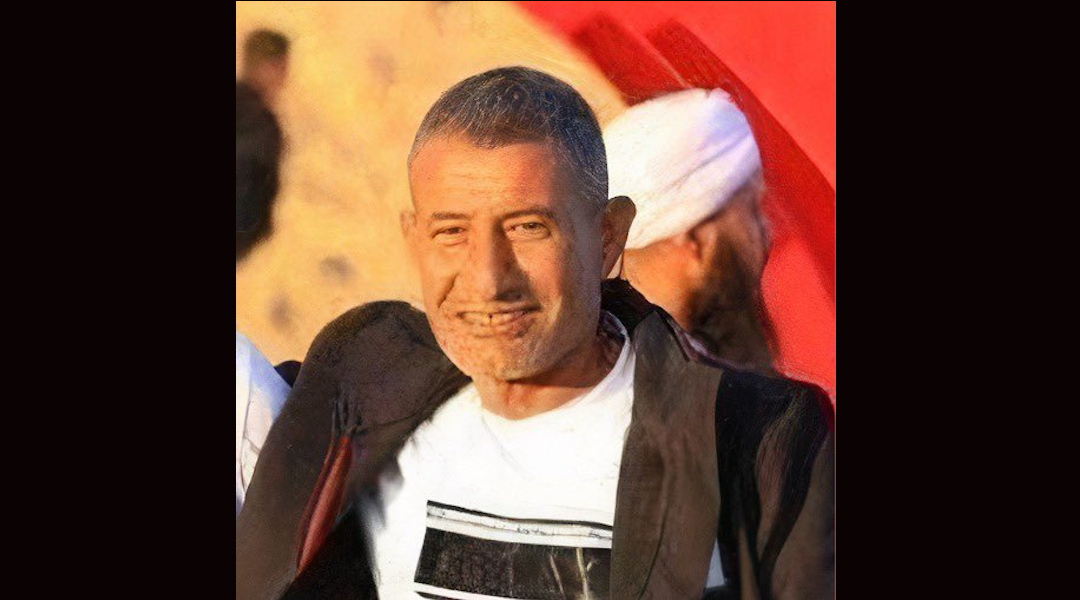Hostage rescued from tunnel in Gaza; Bedouin father of 11 was a security guard on Oct. 7
Qaid Farhan al-Qadi, 52, is one of a number of Israeli Arabs taken hostage on Oct. 7.

Qaid Farhan Al-Qadi was rescued from Gaza by Israeli troops on Aug. 27, 2024. (Israel Defense Forces)
(JTA) — Israeli troops have rescued an Israeli hostage from southern Gaza, the military announced Tuesday. the eighth captive held by Hamas to be brought back alive by Israeli forces since Oct. 7.
Qaid Farhan al-Qadi, 52, a Bedouin Israeli and father of 11 from the southern city of Rahat, worked as a security guard at Kibbutz Magen on the Gaza border and was captured by Hamas terrorists during their Oct. 7 attack. He was one of several Israeli Arabs to be taken hostage.
Al-Qadi was rescued Tuesday morning by Israel’s elite Shayetet 13 unit from a tunnel and has been brought to a hospital for examination. Israel reported that his condition is stable but has released few details regarding the military operation.
“Today, the IDF and ISA rescued the hostage Qaid Farhan Alkadi, aged 52, from Rahat, who was abducted by the Hamas terrorist organization into Gaza on October 7,” the Israel Defense Forces said in a statement. “Israeli security forces will continue to operate with all means to bring home the hostages.”
The rescue operation comes more than two months after Israeli troops rescued four hostages in central Gaza in early June, among them the festival-goer Noa Argamani who had become a symbol of the crisis. In total, Israel has rescued eight hostages in four separate operations. More than 100 were freed in a ceasefire deal in November, shortly after the war began.
Israel has also retrieved the bodies of some of the hostages who have been killed in Gaza, including six that were brought back in an operation last week. An examination of the hostages’ bodies indicated they had been shot while captive in Gaza.
Israel estimates that slightly more than 100 hostages remain in Gaza, with at least 34 thought to be dead. Families of hostages and their supporters have rallied for a ceasefire deal that would free the remaining hostages, but talks between Israel and Hamas have stalled repeatedly and are now reported to be moving slowly.
“Kaid’s return home is nothing short of miraculous,” the Hostage Families Forum, a group representing many of the captives’ families, said in a statement on Tuesday. “However, we must remember: military operations alone cannot free the remaining 108 hostages, who have suffered 326 days of abuse and terror. A negotiated deal is the only way forward. We urgently call on the international community to maintain pressure on Hamas to accept the proposed deal and release all hostages.”
The Israeli military’s top spokesman, Daniel Hagari, drew criticism from a source widely believed in the Israeli media to be Prime Minister Benjamin Netanyahu this week when Hagari cited rescuing hostages as the “central war goal” without listing the other goals of dismantling Hamas and removing security threats as equal.
In December, al-Qadi’s brother and son traveled to Los Angeles to speak in front of a mural painted to raise awareness of the hostages. While there, they met with local officials and Muslim leaders to press for the hostages’ release. While he was in captivity, he had a grandson born to him.
“I can’t explain this feeling, it’s better even than the arrival of a new baby,” one of his brothers told Israeli media on Tuesday. “Thank God, we are thankful to everyone and we hope to see him soon healthy. We’re so happy, very happy to get this news.”
















